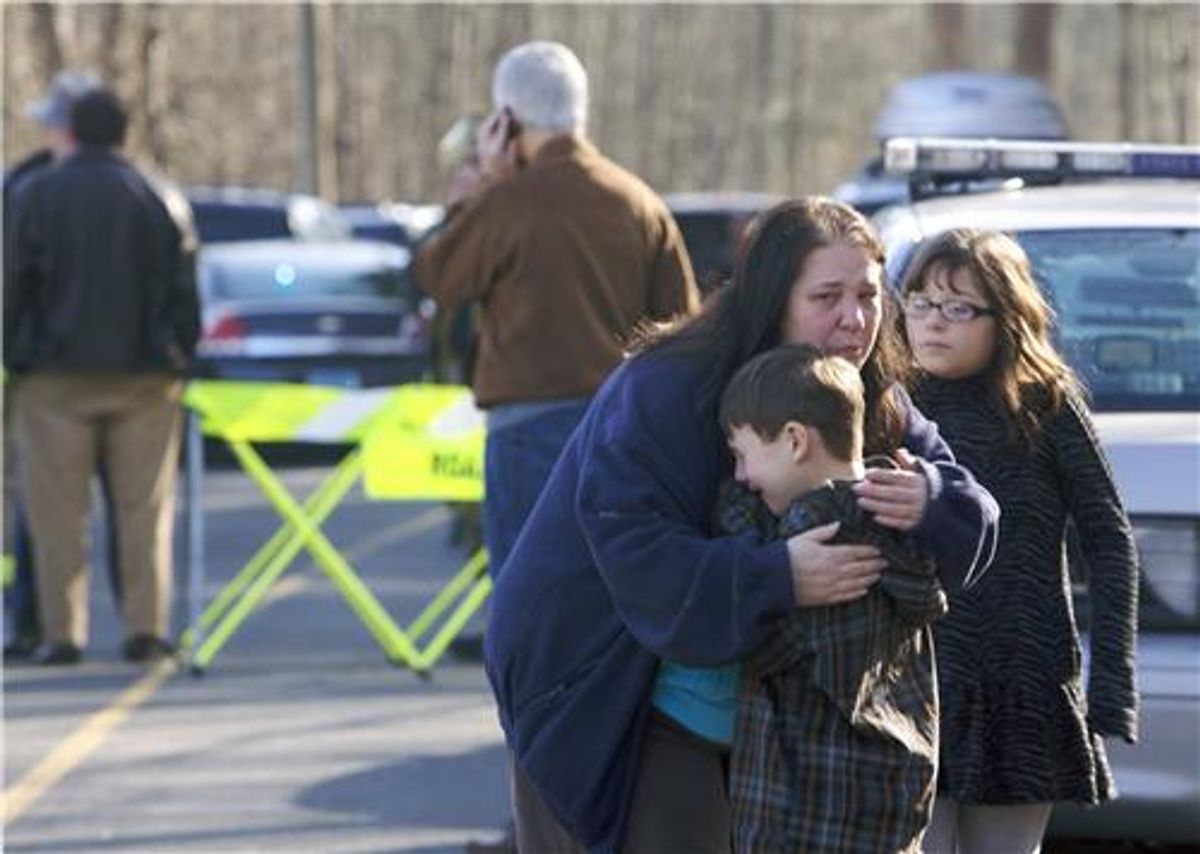The news out of Newtown, Conn., is heartbreaking. And there is a lot of it. As the nation continues to learn more about the victims and the terrible details of what happened inside Sandy Hook Elementary last week, many parents have begun to shield their kids from the information onslaught.
According to a report from the Pew Research Center, more than half of all parents polled have begun to restrict their children's news access in the wake of Friday's mass shooting.
Fully 71 percent of parents with children in elementary school are trying to restrict how much coverage of the events their children watch, compared with only 36 percent of parents with older children. Six in ten parents (60 percent) with both elementary-school-age and older children are restricting how much coverage their children watch.
Parents have long grappled with age-appropriate ways to talk with their children about grown-up tragedy, with a number of instructional guides offering suggestions. But the question remains: How much is too much information to share with your kids?
As Lisa Belkin, a contributor to the New York Times' Motherlode blog, asks:
How much should you tell a small child? What is honesty and what is crossing a boundary?
Do we have the right to share every thought we have about our children? Do we have an obligation not to share our every thought with them, even when they ask?
There are no easy answers, but many experts agree that when it comes to sharing the story of Sandy Hook with young children, less is more. Echoing the sentiment of other mental health professionals, Dr. Joshua Weiner advises parents to be "brief and simple and not go into detail. ... Young children don't understand probability. ... You want to assure them that they will be safe." The bottom line seems to be that making your child feel safe -- not exposing them to every awful detail -- is what really counts.



Shares